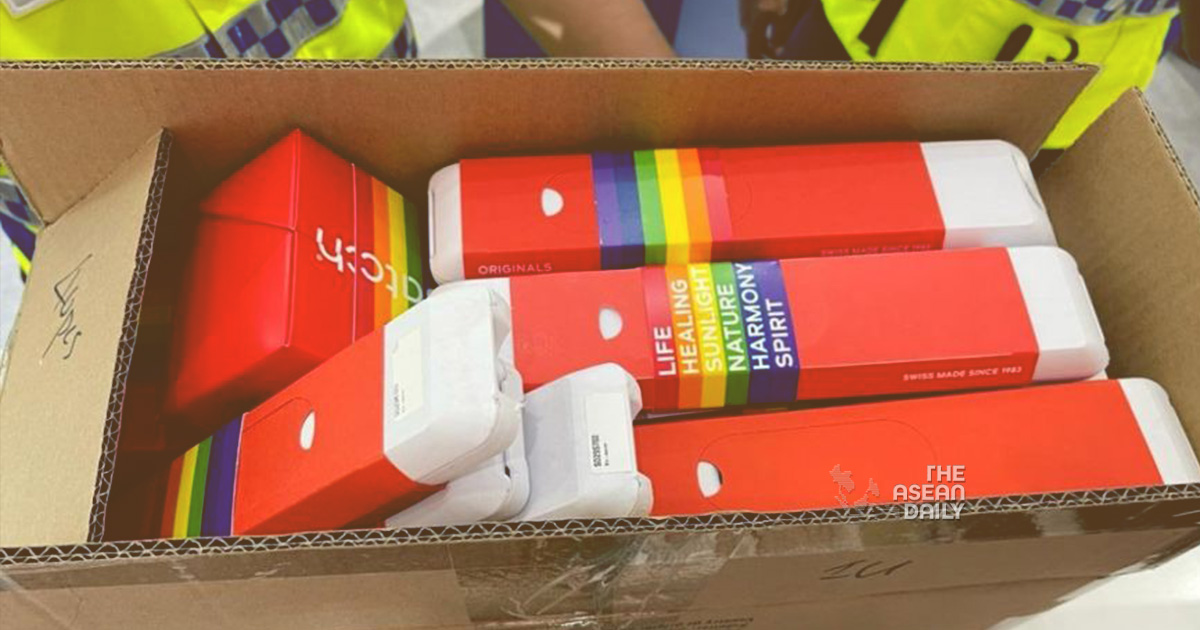29-8-2023 (KUALA LUMPUR) Recent raids on bookshops and watch stores in Malaysia have sparked renewed criticism of the country’s draconian censorship laws, with many arguing the outdated provisions are being misused to suppress freedom of expression. Bookshop owner Amir Hamzah Akal Ali says he is now more cautious about who enters his small shop in Kuala Lumpur after officers from the Ministry of Home Affairs seized two books there in August under the Printing Presses and Publications Act (PPPA).
The act, passed in 1984 during Mahathir Mohamad’s first term as Prime Minister, gives the Home Minister sweeping powers to censor any publications deemed prejudicial to public order, morality or national security. But in today’s digital age, when information flows freely online, many argue such laws have lost their relevance and are instead being abused to stifle dissent.
Known by his pen name Benz Ali, the 35-year-old has been selling Malay language books exploring topics like philosophy, politics and history from his shop and online for a decade. However, on August 18th officers took Marxist educator Marx Sang Pendidik Revolusioner and the poetry collection Koleksi Puisi Masturbasi, without an order prohibiting the books having first been gazetted as required under the act.
“What is the point of their raids? Have they read the books or is it because of the titles? Sometimes the titles are just clickbait,” Ali asks. The Ministry claims the action was in response to public complaints, but the vague provisions of the PPPA are open to misuse, critics argue. With internet censorship virtually impossible, such raids only seem aimed at restricting freedom of thought.

The bookshop raid came months after a similar action targeting Swatch stores nationwide in May over watches supposedly promoting the LGBT community. A total of 164 items were seized before an official ban was later gazetted. Both cases highlight the overreach of powers afforded under the PPPA and lack of due process, say lawyers. “Without a gazette in place prohibiting such ‘undesirable publications’, any raid and seizure carried out by MOHA would most likely be unlawful and excessive,” notes a Malaysian Bar spokesman.
The Swatch case also fuelled concerns about growing hostility towards LGBT groups. Justice for Sisters, a advocacy group, said it fits an “increasing trend in the use of the PPPA in restricting LGBT-related expressions.” Ironically, the ban had the opposite effect for some, like businessman Jason who purchased rainbow-themed watches from Taiwan in a show of support for the community. “They can seize anything, but our identities will remain the same,” he says, arguing freedom of expression should not be curtailed.
The Pakatan Harapan coalition that took office in 2018 had pledged wide-ranging reforms including repealing laws like the PPPA restricting free speech. However, Wathshlah Naidu from independent media watchdog the Centre for Independent Journalism argues “the government seems to be reacting to conservative voices rather than principles of an open democracy.” She notes the lack of clear reasons justifying such enforcement actions.
Home Minister Saifuddin Nasution told parliament in April that a review found the PPPA was still needed, without providing details of the study. However, many argue it is no longer relevant in today’s digital age. Publisher Chong Ton Sin, whose book was seized in 2020, questions why the act is still enforced when information circulates freely online. “Even if you ban one book, it can be uploaded and accessed. The times have changed,” he says.
Bookshop owner Ali echoes this, stating that while physical books may be taken, the internet cannot be blocked. Where are the promised reforms, ask critics. Lawyers for Liberty director Zaid Malek calls the continued wielding of PPPA powers “appalling” from a government that rose to power vowing change. “Seizing or destroying books is the hallmark of a police state, not the democracy we are supposed to be,” he argues. The Malaysian Bar has long pushed for its repeal as a “repressive piece of legislation.”
As conservative voices grow louder in Malaysia, the misuse of laws like the PPPA risks further stifling the open debate and dissent necessary in a progressive society. Unless overhauled as pledged, such actions will continue facing allegations of unnecessarily restricting individual freedoms to appease populist sentiments, rather than upholding democratic principles of an open and just system of governance. For now, the raids have left bookshop owners and activists more wary, but also more determined to assert their right to freely access and share information and ideas.




